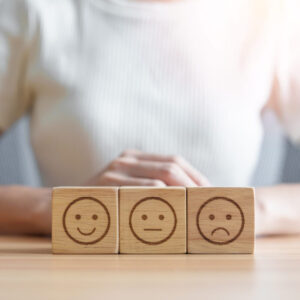 Emotions play a major role in how we feel, but a new study suggests that they can also impact how we move.
Emotions play a major role in how we feel, but a new study suggests that they can also impact how we move.
The study, which was conducted at Tohoku University in Japan, sought to learn more about how our emotional states impacted ankle proprioception during specific movement tasks. The small study involving 20 healthy young adults targeted four specific emotional conditions through music: happy, sad, neutral and no music. While listening to certain musical choices aimed at invoking specific emotions, participants were asked to match target ankle positions. Researchers ultimately wanted to see how listening to music could alter a person’s ability to sense joint positioning in space.
After analyzing the results, researchers found:
- The emotional state of sadness led to significantly improved joint positioning during proprioception testing.
- The emotional state of happiness led to decreased performance during proprioception testing.
Researchers noted that while many people might inherently assume that an emotion like sadness is detrimental to physical performance, the study found that the emotion may improve one’s ability to perform precision-based tasks.
“Sadness improved joint position sense performance, stabilizing errors, whereas happiness increased variability and inaccuracies,” researchers wrote. “Listening to emotion-related classical music can distinctly influence ankle joint positioning accuracy.”
We’re not saying that you should only listen to classical music that leaves you feeling bummed out the next time you go for a run, but there may be some benefit into using music and your emotional state to sharpen your ability to perform precision-based tasks. Don’t let a happy mood ruin your concentration, and use other emotional states to fuel your focus, because your body will be better off for it!
This isn’t the first time that we’ve explored the benefits of music in the medical world. We’ve discussed how music could help calm anxiety in the operating room for patients undergoing a procedure under regional anesthesia, and we’ve explained how upbeat music may help you exercise longer. Music can certain have a bigger impact on our mind and body than we realize, and we should try to use this to our advantage when possible.